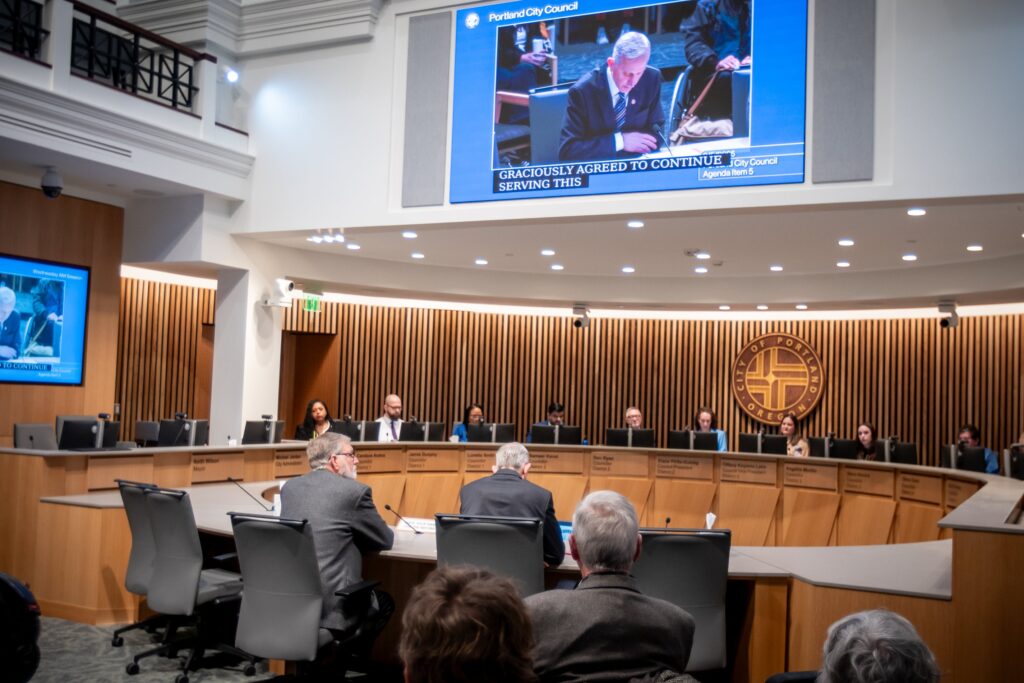As the city’s elected representatives adjust to our new system of governance, the 12-member Portland City Council has already made a number of missteps. They have mishandled meeting procedures, struggled with whether to invite public testimony, and voted a foolish budget amendment that had to be revoked the next day.
The irresponsibility of the City Council’s 7-5 vote to deny grant recommendations from the Portland Children’s Levy to organizations that assist the most underprivileged youngsters in the city, however, stands out. A majority of councilors remanded the list of 64 chosen groups to the Children’s Levy for additional review, echoing the bitter protests of a few politically linked organizations. According to Shane Dixon Kavanaugh of The Oregonian/OregonLive, the action has compelled dozens of shoestring organizations that offer mentoring, food assistance, foster kid support, and other services to either scale back their plans or rush to backfill funding that was scheduled to start next week.
Given the severe need for children’s services and the uncertainties surrounding funding at all governmental levels, every attempt should be made to overturn this decision. The seven council members who supported remaking the list ought to acknowledge the thorough process that produced the suggestions and change their minds.
There was barely any controversy when Portland Children’s Levy executives met with councilors about two months ago to explain the selection process and recommendations. Leaders of the Children’s Levy identified the organizations that were suggested to receive three-year grants totaling approximately $65 million. Organizations with at least half of their members identifying as Black, Indigenous, or people of color accounted for three-quarters of the approved applications. According to the Children’s Levy, children from racial, sexual, and gender minorities, refugees, and those with disabilities should be given priority.
A number of the groups dissatisfied with the rulings, however, quickly persuaded City Council to reject the recommendations, claiming that organizations led by people of color were underrepresented and denouncing the procedure as racist.
Self Enhancement Inc., an established, well-connected youth organization, and Equitable Giving Circle, a hunger relief organization led by a former City Council candidate, were among the groups most outspoken in their complaints. Black families are the main beneficiaries of both. Although SEI was picked for a $1.9 million, three-year award, it was not selected in a different area for a new grant; Equitable Giving Circle, which placed 23rd out of 23 applicants in the hunger relief category, was not tapped to get any funds.
In their inquiries to Lisa Pellegrino, the director of the Children’s Levy, at a meeting on June 4, a number of councilors appeared to be channeling the grievances of those organizations. It was evident that some councilors were seeking an excuse to reject the proposals, even though Pellegrino’s thorough responses refuted a number of assertions.
Just have a look at the plethora of odd or contradicting criticisms they made: While Councilor Sameer Kanal hypothesized that tiny, new nonprofits were at a disadvantage in scoring because they lacked experience, Councilor Loretta Smith questioned why some small, new NGOs were given preference over large, established organizations. Even though the Ethiopian and Eritrean Community Resource Center, Triple Threat, and Holla mentoring organizations led by Black Portlanders were among the grantees, Councilor Mitch Green stated that it would be difficult for him to vote in favor of a package that states that Black-led organizations cannot serve as mentors to Black individuals.
While Councilor Tiffany Koyama Lane maintained that the issue was ensuring they got the process right, Councilor Jamie Dunphy contended that the results were the problem regardless of whether the process was followed. Councilor Angelita Morillo, meanwhile, blasted a lack of transparency despite reams of information being supplied with councilors and questioned whether the process was carried out as ethically as feasible. Commissioner Candace Avalos also questioned Pellegrino about why it would take up to a year to conduct a new review of the funds, despite the fact that councilors were unable to agree on whether they wanted a new study or a completely different procedure.
When people are unhappy with the outcomes, they often use the excuse that the process was defective. However, the dissident councilors should at least point up the issue. Councilor Steve Novick chastised his colleagues as he went through the lengthy, community-guided process: Do we think we’re choosing the wrong volunteers? Do we believe that the community council or the fact that they do a blind examination are flawed? Do we believe that the allocation committee is having issues?… I don’t fully get the process’s detractors. Unfortunately, the group of five failed to win, despite the participation of Councilors Olivia Clark, Eric Zimmerman, and Dan Ryan, as well as Council President Elana Pirtle-Guiney.
The unexpected effects are being ruined by some of the councilors who voted for a do-over, which is strange. However, at the June 4 meeting, councilors were fully aware of these ramifications, which actually led them to approve a one-year extension that would only apply to organizations who were already getting sizable donations. Councilors should not have voted to reject the funding if they had no intention of stopping the payments to charitable organizations.
Instead, they stranded 36 organizations that offer programs like the Native American Rehabilitation Center’s child-abuse prevention services, The Dougy Center’s counseling for foster youth, Kairos PDX’s hunger relief, p:ear’s mentoring for homeless youth, and the Pacific Refugee Support Group’s after-school program.
For a variety of reasons, including incomplete information, a hurried schedule, and constrained viewpoints, councilors may make poor decisions. As long as people are willing to fix their mistakes, making them is not inherently humiliating.
They will continue to make mistakes. However, council members should keep in mind that the promise of more representation was a major justification for altering Portland’s system of government. Regretfully, councilors are demonstrating that the game hasn’t altered anything other than the players by attacking a procedure that didn’t produce the winners they desired.
-The Editorial Board of Oregonian/OregonLive





More Stories
Editorial: Portland City Council’s most reckless decision yet
Editorial: Portland City Council’s most reckless decision yet
Editorial: Portland City Council’s most reckless decision yet